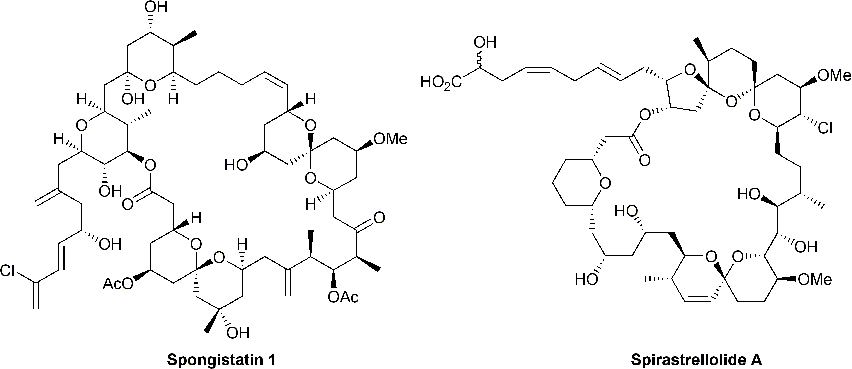Wednesday, 16 May 2007 - 3:30 PM
Auditorium (100) (Pfahler Hall)
133
Complex Molecule Synthesis Exploiting Anion Relay Chemistry (ARC)
The past twenty years has witnessed a cornucopia of polyketide-based marine natural products of ever increasing structural, functional and stereochemical complexity. Although many of these natural products have succumb to the “art of total synthesis,” via the many elegant aldol and allyl organometallic protocols developed over the past two decades, the successful syntheses often suffer from excessive length owing to the limited increase in molecular complexity arising from the iterative nature of the required transformations, the necessity for additional steps required to adjust protecting group strategies and/or oxidation states, and/or the modest levels of stereocontrol and reaction efficiencies. As a consequence of these issues, we introduced Anion Relay Chemistry (ARC) in 2006 as an alternative approach for the construction of structurally complex polyketide-based natural products, as will be illustrated with spongistatin 1 and spirastrellolide A.
The ARC tactic comprises a reliable, scalable and stereospecific multi-component coupling protocol, inherently more convergent than the aldol or organometallic-based approaches. Additionally, by virtue of the unique mechanism, the products obtained possess orthogonally differentiated oxygen substituents, which can in turn be manipulated independently with a high degree of chemo- and stereocontrol. Given the robust nature of the ARC protocol, recent efforts in our laboratory have turned to expand the scope of this method to include the construction of libraries of marine "natural product-like” compounds from a small number of readily prepared building blocks. The libraries so constructed, given their similarities with marine natural products in terms of structural, functional and stereochemical complexity, should lead to wide variety of highly specific and selective biological probes with favorable solubility and ADMET profiles.
Back to Cope Scholar Award Symposium II: Franklin A. Davis
Back to The Middle Atlantic Regional Meeting (May 16 - 18, 2007)
